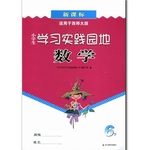
Culture shock begins with the "honeymoon stage". This is the period of time when we first arrive in which everything about the new culture is strange and exciting. We may be suffering from "jet lag" but we are thrilled to be in the new environment, seeing new sights, hearing new sounds and language, eating new kinds of food. This stage can last for quite a long time because we feed we are involved in some kind of great adventure.
Unfortunately, the second stage can be more difficult. After we have settled down into our new life, we can be very tired and begin to miss our homeland and our family, friends, pets. All the little problems in life seem to be much bigger and more disturbing when you face them in a foreign culture. This period of cultural adjustment can be very difficult and lead to the new arrival of rejecting or pulling away from the new culture.
The third stage is called the "adjustment stage". This is when you begin to realize that things are not so bad in the host culture. Your sense of humor usually becomes stronger and you realize that you are becoming stronger by learning to take care of yourself in the new place. Things are still difficult, but you are now a survivor.
The fourth stage can be called "at ease at last". Now you feel quite comfortable in your new surroundings. You can cope with most problems that occur. You may still have problems with the language, but you know you are strong enough to deal with them.
There is a fifth stage of culture shock which many people don't know about. This is called "reverse culture shock". Surprisingly, this occurs when you back to your native culture and find that you have changed and that things there have changed while you have been away. Now you feel a little uncomfortable back home. Life is a struggle!
64. When does culture shock happen?
A. When you reach your teens
B. When you move to a big city
C. When you meet foreign people for the first time
D. When you go to live in a foreign country
65. How do you feel during the first stage of culture shock?
A. Lonely and depressed B. Bored and homesick
C. Happy and excited D. Angry and frustrated
66. One's sense of humor becomes stronger in the "adjustment stage" because_________.
A. he gradually gets used to the language and culture
B. he has to understand jokes in a new culture
C. humor can help him to become stronger
D. he often plays jokes on others to be popular
67. Why might reverse culture shock be a problem?
A. It hardly ever happens. B. It is extremely stressful.
C. Most people do not expect it. D. It only happens to young people.
 学习实践园地系列答案
学习实践园地系列答案科目:高中英语 来源:河北省邢台一中2011-2012学年高二下学期第四次月考英语试题 题型:001
听力(共两节,满分30分)
第一节 听下面5段对话。每段对话后有一个小题,从题中所给的A、B、C三个选项中选出最佳选项。听完每段对话后,你都有10秒钟的时间来回答有关小题和阅读下一题。每段对话仅读一遍。
1.What i s Jack' s occupation now?
A.A secretary.
B.A noveli st.
C.A new spaperman.
2.Where doe s thi s conver sation mo st likely take place?
A.In a lab.
B.In a clinic.
C.In a dining hall.
3.How old i s Jane?
A.19.
B.27.
C.35.
4.How often doe s the man go to vi sit hi s teacher?
A.At lea st once a year.
B.Once every two year s.
C.Twice a month.
5.How did the woman feel about the Engli sh program?
A.It' s intere sting.
B.It' s difficult.
C.It' s important.
第二节(共15小题:每小题15分,满分22.5分)
请听下面5段对话。每段对话后有几个小题,从题中所给出的A、B、C三个选项种选出最佳选项。听每段对话前,你将有时间阅读各个小题,每小题5秒钟;听完后,各小题给出5秒钟的作答时间。每段对话读两遍。
听第6段材料,回答第6、7题.
6.How doe s the man seem to feel after thi s job interview?
A.Anxiou s.
B.Hopeful.
C.De sperate.
7.How many interviewee s were able to go to the second interview?
A.4.
B.12.
C.16.
听第7段材料,回答第8、9题。
8.How much will the man pay?
A.15 yuan.
B.55 yuan.
C.50 yuan.
9.How long doe s the Cheaper way take?
A.At lea st two week s.
B.At lea st ten day s.
C.It' s lea st ten week s.
听第8段材料,回答第10至12题。
10.Why doe s the man refu se the fir st flat?
A.It' s too smal1.
B.It' s too expen sive.
C.It' s not on the top floor.
11.Why doe s the woman let the man look at the second flat fir st?
A.He i s clean and quiet.
B.He i s kind and polite.
C.He i s poor and hone st.
12.How much will the man pay before moving in?
A.$100.
B.$50.
C.$30.
听第9段材料,回答第13至16题。
13.What i s Tom doing?
A.Li stening to Engli sh song s.
B.Surfing the Internet.
C.Preparing for a te st.
14.How doe s the woman find studying Engli sh?
A.Intere sting.
B.Boring.
C.Difficult.
15.What doe s the woman sugge st the man do?
A.Play more game s online.
B.Talk with friend s online more often.
C.Learn We stern culture online.
16.What will the woman do next?
A.Go to school.
B.Take an exam.
C.Review le s son s.
听第10段材料,回答第17至20题。
17.Who i s the speaker talking to?
A.People showing intere st in the theater.
B.People working in the building.
C.People vi siting the univer sity.
18.What i s the video showing today?
A.The teacher s of the univer sity.
B.The hi story of the theater.
C.The building s in the city.
19.How soon will people meet again?
A.In an hour and a half.
B.In half an hour.
C.In an hour.
20.What i s the purpo se of the speaker' s talk?
A.To tell people the rule s they should follow.
B.To give people a brief introduction.
C.To show people the direction.
查看答案和解析>>
科目:高中英语 来源:甘肃省兰州交大东方中学2010届高三上学期期中考试英语试题 题型:050
| |||||||||||||||||||||||||||||||||||||||||||||||||||||||||||
查看答案和解析>>
湖北省互联网违法和不良信息举报平台 | 网上有害信息举报专区 | 电信诈骗举报专区 | 涉历史虚无主义有害信息举报专区 | 涉企侵权举报专区
违法和不良信息举报电话:027-86699610 举报邮箱:58377363@163.com